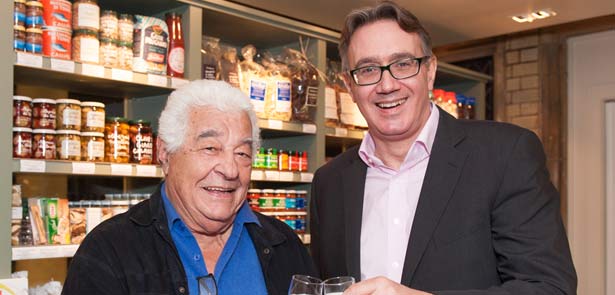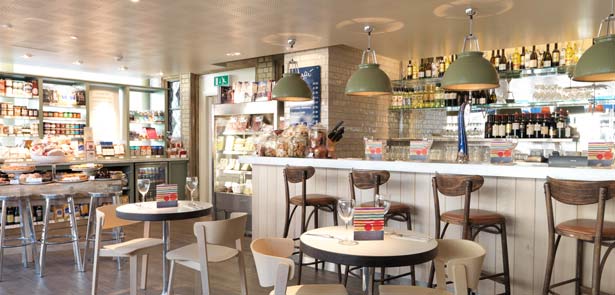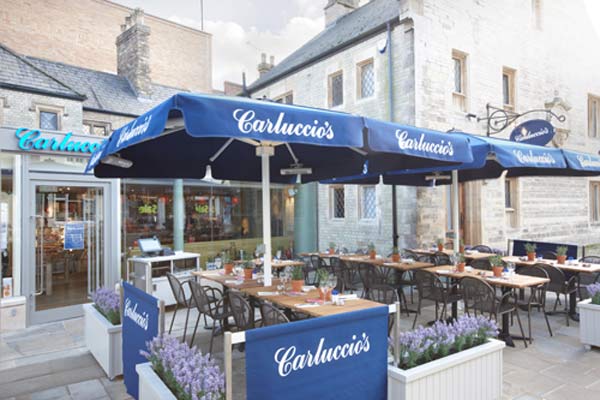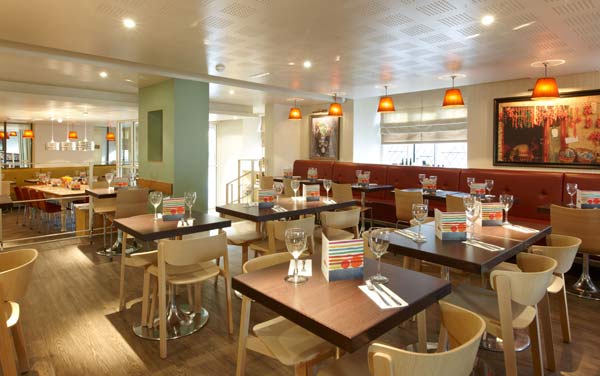Carluccio’s: Quantity and Quality?
Carluccio’s: Quantity and Quality? 1 2


Carluccio’s has been stampeding across the UK in the last few years. In 2012 alone, the Italian restaurant chain opened up ten new restaurants in the UK and there are no signs of it slowing down. The Business Moment caught up with chief executive Simon Kossoff and Antonio Carluccio himself at the launch of the 71st restaurant, in Peterborough, to talk about dodging the recession, the “family” business and the dreaded “C” word...
It is a chain. There’s no doubt about it, you can’t pretend it’s not. But we don’t like calling it a chain because we work very hard to try to give it a slightly different feeling. Ultimately it’s the customer who gets to decide, but we like to think it’s a bit different to your average high street restaurant. We’re trying to make the food like it would be if you ordered it in Italy. So if you order our hand-made ravioli, I want you to believe that’s what you would get if you went to Italy on holiday, and we’re trying to do that in a way I don’t think the rest of the competition really are
It’s perfectly understandable why Simon would want to distance Carluccio’s from the word “chain”. After all, it’s a word that can just as easily be linked to McDonalds – and doesn’t particularly inspire confidence in the idea of good, authentic Italian cuisine.
What does inspire confidence, however, is the name “Carluccio” – a fact of which Simon is well aware:
Oh it’s very important. The brand has a jumpstart because of the name and we immediately give messages about what it might inherently be. Do I think a restaurant with a deli that had my name over the door would work? Yeah probably, but not as well!
Antonio Carluccio has established the ultimate reputation as the “Godfather of Italian Gastronomy”. He has served high profile guests from Prince Charles to Mick Jagger, written over 18 books, made countless TV appearances, and even trained a young Jamie Oliver. As a byword for authentic Italian cuisine, he is incredibly important as the face of the company. But the restaurant is not just riding on the coattails of Antonio’s reputation. Despite selling most of his shares in 2005, the twinkly-eyed septuagenarian still plays an active role in the company on a consultancy basis. Firstly, Antonio continues to design the menu, which features many of his own unique recipes such as Penne Giardiniera (something Antonio personally recommends – but then again as he says in his thick, gravelly Italian accent, “I like them all! I never put on the menu something that I don’t like!”)
Training the chefs is another area where Antonio continues to play a significant, albeit less hands- on role. While he used to personally oversee the induction training of all new chefs, the business has now grown to 71 outlets in the UK plus six in the Middle East and one in Ireland, and with 2,500 members of staff that is no longer possible. Nowadays, the business has opened a dedicated training school in London – a sort of lecture theatre with kitchens – where up to six apprentices at once can learn from a head chef. The company has also invested in sophisticated technology to allow these lessons to be filmed and broadcast over the internet to stores nationwide. Trainee chefs are then sent to Westminster Kingsway College to learn the generics about cooking, before the most promising students are sent to Italy for “finishing school”, as Antonio puts it.
And after that they should be able to cook what I suggest to them, and if they don’t, we insist, and if they still don’t – they go! Because it means they’re not very good
It’s certainly a more rigorous training process than a lot of high street chains, but then the chefs also prepare a lot more food on site than many, from freshly-made pasta, to fillings such as ricotta and spinach and even the focaccia bread is baked freshly every day.
It does make it really difficult to make sure we have the same standards here as say Glasgow. But we choose to do most of our food that way, because we think in the end it’s a better product and that’s what the customer wants. We’ve had to come up with lots of ways of training people to achieve that, and so far, I think we’re pretty successful
Carluccio’s: Quantity and Quality? 1 2

















